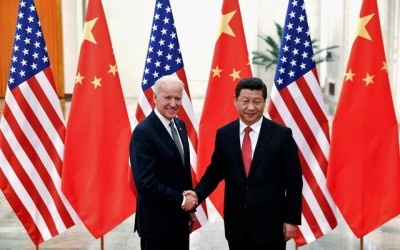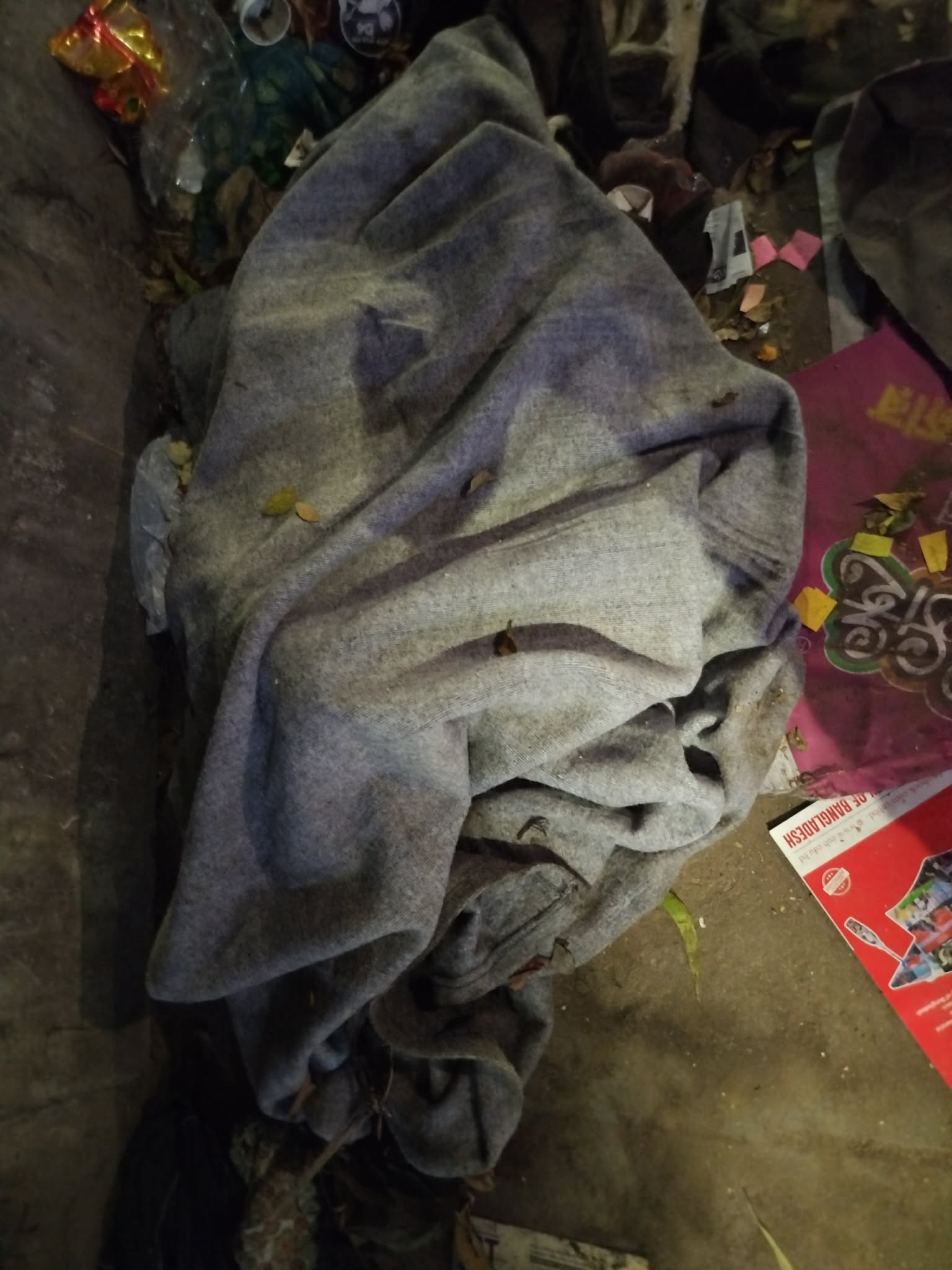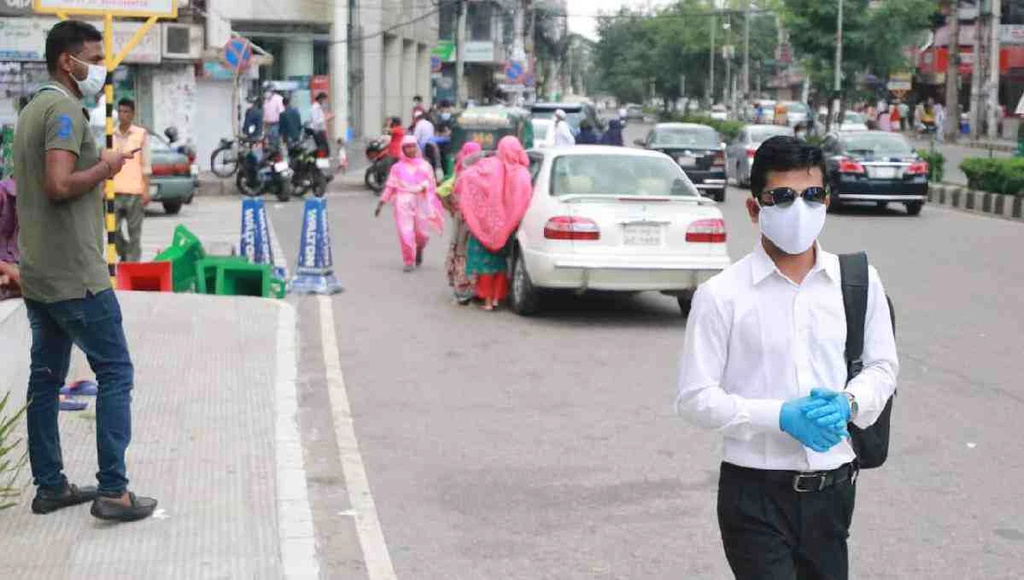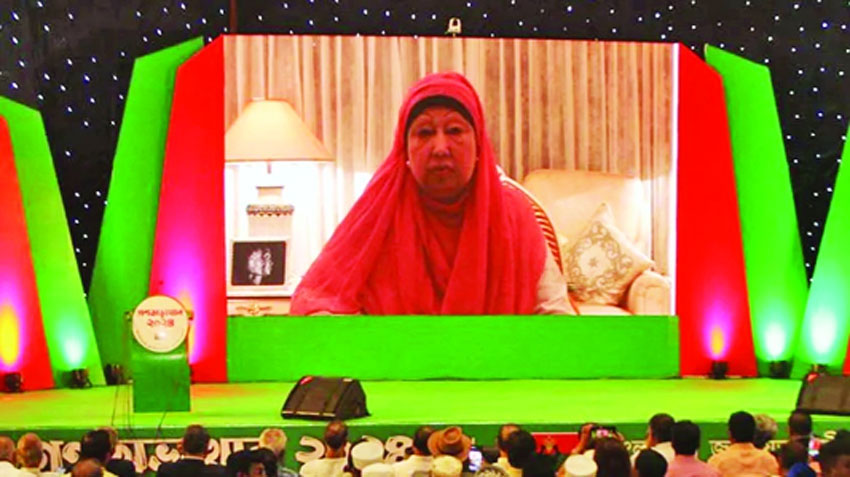- 2022-03-21 02:41:58
- LAST MODIFIED: 2025-12-26 11:00:16
After the Xi-Biden call, China offers different messages to different audiences on Ukraine
International Desk

Chinese President Xi Jinping shakes hands with US Vice President Joe Biden (L) inside the Great Hall of the People in Beijing December 4, 2013. REUTERS
Qin Gang, the Chinese ambassador to the United States, said Sunday that China would not send weapons and ammunition to support Russia’s war in Ukraine and that Beijing would “do everything to de-escalate the crisis.”
Qin’s comments, which were aimed at an American audience, presented a softer tone than the one officials in Beijing have used when discussing the war, particularly in domestic settings. The remarks came as higher-ranking Chinese officials continued to accuse the United States and Europe of instigating the conflict, and continued to amplify Russian disinformation that served as a rationale for the invasion. They also followed US President Joe Biden’s warning Friday to Chinese President Xi Jinping that China would face “consequences” if Beijing gave material aid to Russia to support its war.
China’s rhetorical strategy — speaking of peace and de-escalation to an international audience while continuing to support Russia domestically — demonstrates the careful moves Beijing has made in staking out its position on Ukraine.
But the United States has voiced scepticism of that approach. Secretary of State Antony Blinken criticised Beijing in a news conference Thursday for refusing to condemn Russia’s invasion of Ukraine “while seeking to portray itself as a neutral arbiter” in the crisis.
“We believe China in particular has a responsibility,” Blinken said, “to use its influence with President Putin and to defend the international rules and principles that it professes to support.” Instead, he added, “it appears that China is moving in the opposite direction.”
Some of Qin’s remarks aligned with the language of more senior officials. He rejected as “naive” the idea of China publicly condemning Russia’s invasion, insisting that Beijing’s efforts to pull Moscow back from the conflict would be more effective from a position of neutrality.
“China’s trusted relations with Russia is not a liability,” Qin said on CBS’ “Face the Nation,” adding that Xi had at some point told Russian President Vladimir Putin to back down from the conflict. But domestically, Chinese officials have continued to echo Russia and accuse NATO of provoking the war while criticizing sanctions levied against Moscow in retaliation for the invasion.
“What lies at the heart is the issue of European security, and NATO’s move of expanding eastward without limit merits reflection,” Chinese Foreign Minister Wang Yi said Sunday during a joint news conference with Algeria’s foreign minister.
Wang also equated Russia’s invasion of Ukraine, which has killed thousands and displaced millions, with the sanctions against Russia. “It is widely believed that when addressing regional and international hot-spot issues,” Wang said, “war and sanctions are not the only options, and dialogue and negotiation is the fundamental way out.”
A day earlier, Chinese Vice Foreign Minister Le Yucheng also criticised the sanctions, saying that “globalisation is used as a weapon” against Russia and that “the overseas assets of Russian citizens are seized groundlessly.”
He also falsely said that NATO had broken a pledge not to expand into Eastern Europe at the end of the Cold War. In fact, although that offer had been made during negotiations with the Soviet Union, no such provision was included in the final treaty unifying Germany signed by American, European and Russian officials.
Source: The New York Times










